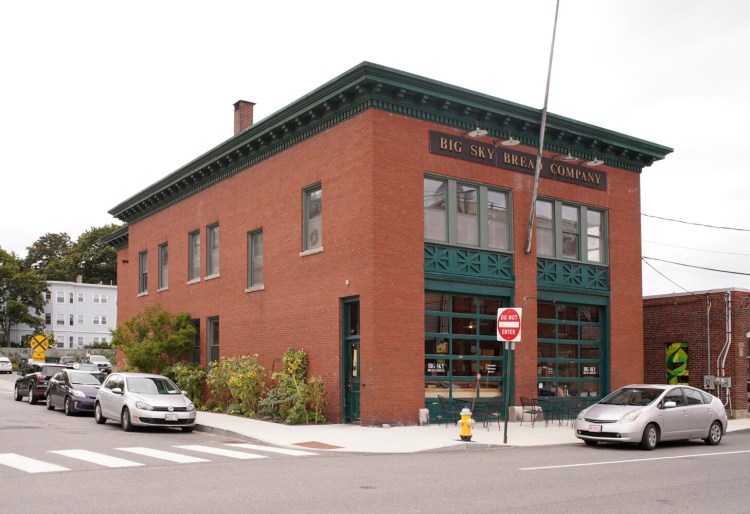The Portland City Council hit the brakes Monday on a staff request to designate 17 buildings along Forest Avenue – once known as “auto row” – as historical landmarks.
Councilors postponed action on the proposal until Oct. 21 and planned to hold a workshop to get more information about how the designation would impact future development and adjacent property owners. And they also wanted to hear from landowners who were opposed to having their buildings designated as landmarks.
“I need a little more time,” City Councilor Spencer Thibodeau said.
The vote came after several affected property owners testified against having their properties designated because it would restrict their property rights and could delay and add to the cost of building repairs or renovations.

City Councilor Kimberly Cook had proposed an amendment that would have designated five buildings near Woodfords Corner as landmarks, allowing the council to study the rest. But after other councilors questioned how that designation would impact future building heights and alterations to structures near landmarks, they decided to delay the whole package.
“I was attempting to move us in a direction where there might be some consensus,” said Cook adding that she has heard from “many” concerned property owners.
Mayor Ethan Strimling was not in the chambers for the vote and Councilor Nicholas Mavodones was absent.
A landmark designation would protect the buildings from being demolished or severely altered. Once designated, alterations would need to be reviewed and approved by historic preservation staff or a board appointed by the City Council. And historic renovation projects could qualify for state and federal tax credits.
Deb Andrews, the city’s historic preservation manager, said the designation would not prohibit redevelopment of the buildings. She showed examples of ways other former auto showrooms were redeveloped by adding floors set back from the building facade, or that had contemporary buildings built next to or behind them.
During public comment, more than a dozen people, mostly many affected landowners, asked the council not to designate their buildings.
Some complained that it already takes too long to get building permits from the city. Adding a historical review process would only lead to more delays and costs for maintaining or enhancing properties.
Nathan Cermelj said he faced significant delays in getting permits to establish the Liberty Bay Recovery Center at 343 Forest Ave. He worried that a historic designation could further complicate efforts to expand his center and treat more people.
“We’ve taken care of it and we have put a lot of money into it,” Cermelj said. “It does affect our lives, our business and people trying to get into treatment.”
Adam Nappi, who owns 495 Forest Ave., said it was unfair to add restrictions on some property owners, but not others. He said it would stifle economic development, restrict housing development and add time and costs to doing business in Portland.
“Without consent, this is a violation of property owners’ rights,” Nappi said.
Several area residents supported the designations, as did Greater Portland Landmarks.
Kate O’Brien said she works in the field of economic and community development and that historic preservation has a proven track record. She was encouraged that the proposal would allow floors to be added to the designated structures and for the removal and redevelopment of rear portions of the buildings.
“I think it benefits all of us,” O’Brien said.
But Julie Weeks, who owns Palmer Spring Co., said she was “100 percent” against having her property included.
“There’s nothing historic looking about our building. It’s just old and needs work,” she said. “We feel the Historic Preservation Board is overstepping and trying to take control over our building. They want to tell us what we can and can’t do.”
Comments are not available on this story.
Send questions/comments to the editors.



